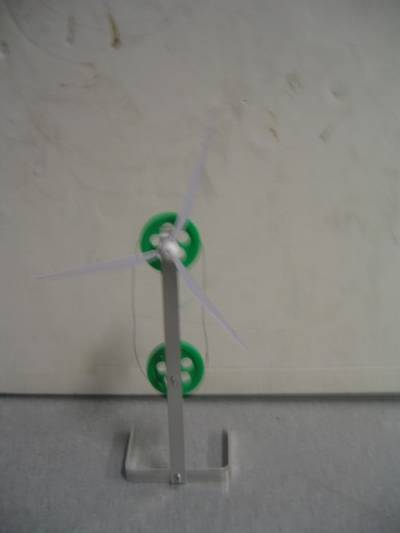Table of Contents
Nitinol Windmill
Description
A chassis connects two wheels of equal size. Around them is a loop of nitinol- a shape memory alloy- that has been 'trained' to straighten when heated up. The top wheel has a propeller attached.
Purpose
Illustrate another example of the huge variety of heat engines. Demonstrate the action of a much simpler heat engine, and show what unites all heat engines: a heat differential.
Apparatus
- Nitinol windmill
- Cup of nearly boiling water
Setup
This works off a temperature gradient across the Nitinol wire, and boiling water (or close to, ~90ºC) is usually good enough for a room temperature environment. Submerge the bottom wheel into the boiling water (just enough to cover the wire) and give the blades a small flick to start it.
Notes
The one with tape on its supporting beam doesn't work as well. There is also a cup near the windmills that has tearing to indicate the maximum filling line.
This simple engine works using a more complicated principle: the shape memory effect. When the wire is bent around a wheel and heated, it will exert a force attempting to straighten itself out. Once the wheel is given a spin, a temperature asymmetry will cause more force to be exerted on one side of the thermobile, so it continues to spin.
Demo room information
| Location | —- |
| Maker | Unknown |
| Current State | Working |

